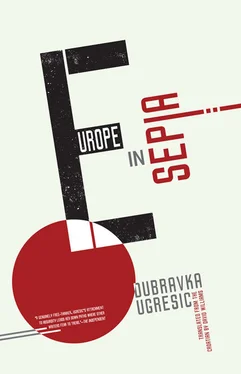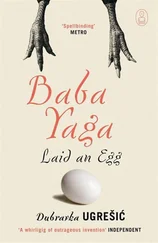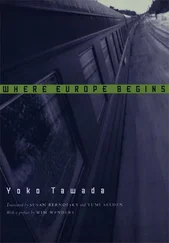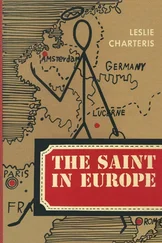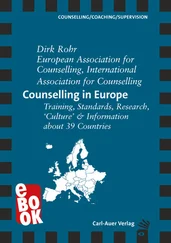Or perhaps the thread was pulled by the young conference organizer, who couldn’t give me the name of Belgium’s reigning monarch (at the time it was Albert II), soft-soaping me with the line that he wasn’t interested in European royal houses — a lame excuse for a young Anglicist specializing in Victorian literature. But on the subject of Belgium, personally he feels more German than Belgian, which naturally makes his ignorance of the Belgian monarchy all the more understandable. I look at him, hair cropped short, cleanly-shaven, hipster glasses, the chic suit and vest, the kind of polished black shoes worn to weddings and funerals — the nerd look is obviously his schtick. Above his head, like a saintly aura, an imagined PowerPoint fires up, scenes from his future professional success assembling: marriage, two children, a wife — preferably Japanese, thin as a twig — research projects, his name a toboggan run for donor money, students just like him, slimers and asskissers, ever at the ready to laugh at his every dorky joke. My gaze can’t get anywhere near his pupils. He didn’t have a handle on the King of Belgium, but he knows all about the cost of train tickets. He’ll get me the cheapest fare, one that will see me travel five hours from Ghent to Amsterdam instead of the regular two. My turn at the conference is as an unpaid keynote speaker. I’m not under the protective skirt of a university, there’s no professorly pension waiting for me, I’m of no use as a referee for this or that scholarship, this or that job — why shouldn’t he save forty euro and have me travel five hours instead of two? This is his moment. Isn’t Your time is now! the slogan for a brand of men’s luxury watches? The Twitter-bird perches on the conference program, he’s to thank for that: Yes, you can now follow a scholarly conference on the reconfiguration of authorship on Twitter. Around him other young Anglicists blather on about new phenomena: twitterature, SMS-novels, collective writing, collaborative authorship, constructions of authorship, fan fiction. Again I try to connect with his pupils. My young “executor” (oh yes, the author and authorship need to be fundamentally reconfigured!) hides behind his glasses, replacing the absence of eye contact with a smile reconfiguring his surroundings. Smiley face!
But maybe the thread was pulled by Eefje, another vernal Anglicist who joined an esteemed elderly professor and me for coffee during the break. Eefje didn’t know who I was, and didn’t care to; it was the venerable professor she wanted to talk to, whom she was out to impress.
“The creative period in every writer’s life is limited,” she said.
“What do you mean by that?” the elderly professor inquired.
“Roth should have quit ages ago! He left his I’m done way too late. Salman Rushdie’s finished, Martin Amis washed up, Margaret Atwood too, all of them, and heaps of others besides, they’re like the living dead!” Eefje wielded her invisible sword through the air.
“And what are your plans?” asked the elderly professor.
“I’ve just finished my first novel,” said Eefje briskly, vivaciously flicking her fabulous curls.
Perhaps the thread was pulled by what I saw on the train from Antwerp to Ghent, faces like they’d escaped from old oil paintings, having first changed their hairdos and clothes; faces with defects, a little deformed, mouths too big, eyes too small, jaws a little too heavyset, faces too cramped, or too long, bodies too short. . Grayed faces, out-of-time, just like the landscape through which the train journeyed, one a passenger would swear was more Hungarian or Romanian than Belgian. And then there was the time itself, as if we’d left the present, as if it were the fifties or sixties — see that young woman on the platform, the tailored green hues of her coat, a belt accentuating her slim figure, the high heels, blood-red painted lips. The woman looks freezing and soaked to the skin, but she’s not; she gets up on her tippy-toes and passionately kisses a man who is shaved bald and otherwise utterly nondescript. The passion is from some other time, not from the present, the scene seems unreal, as if staged for a black-and-white shoot for a street fashion magazine: She’s a beauty (though she shines only today; tomorrow she’ll too have grayed, shriveled like a potato), he a pimp. The train rolls on through fields that sink into a wispy fog. Here and there horses stand motionlessly in the whiteness, as if under a spell. At every station I ask myself why Belgians enter the train and so resolutely sit themselves on the empty seat beside you, never inquiring whether it’s free. An older gentleman lowers his skinny butt onto the seat next to mine as it were a bag, though the seat opposite me is free, the seats diagonally across likewise. .
Or perhaps the unraveling began a few days before I sat in the Ghent-bound train, when at Schiphol Airport, waiting for a flight to Vienna, I entered an airport bookstore, desperation etched on my face, and bought a third copy of Julian Barnes’s The Sense of an Ending. The first time it was because I was curious, the second and now third time simply to suppress any urge to buy Fifty Shades of Grey. I grumbled to myself about the market’s restrictiveness, its lack of imagination, how besides two books— Fifty Shades of Grey on the one hand, and The Sense of an Ending on the other — airport bookstores don’t have anything else I might buy. The latter carries the symbolic imprimatur of literary quality, the former a passing literary brouhaha. Waiting for my flight I watched a girl opposite me, who, truth be told, was no different than the girl sitting next to her, or the young guy leaning up against the wall, or the guy sitting next to me, or the guy who had taken off his shoes and stretched himself out on a leather airport armchair, playing with his iPhone. They were all fiddling with their iPhones. I’m ready to bet that the more serious and sullen their faces, the more banal the content on the little screen captivating their attention. The girl sitting across from me rhythmically stroked her long, polished fingernails up and down the smooth surface of her mobile phone, as if arousing her clitoris. Was that what the faintly pornographic smirk on her face gave away? With an expression suggesting exhaustion, she then packed her mobile phone in her handbag and took out a little round mirror, beginning a thorough examination of her teeth, intermittently using the blood-red nail of her right pinky finger as a toothpick.
Or perhaps the unraveling started a couple of weeks before, kicked off by the girl with the sweet round face (one that could have just as easily been a boy’s), short boyish haircut, unmarked skin, her narrow eyes grated by silvery eyelashes. She too had that out-of-time look, an impression accented by the shape of her eyes, which drooped softly at the corners. Unflattering light might have easily transformed her into an old woman. I didn’t need a guide, chaperone (I was only going to be there twenty-four hours), or translator (her English was an incomprehensible shriek in any case); it was she who needed me. As she explained, she was studying philosophy and literary criticism, working the literary festival was a good way to earn a little on the side. Inter alia, she’d been assigned to me to discreetly suggest a hierarchy, one of which she was naturally oblivious.
The festival organizers never showed their faces; we writers and our local fixers — my young student among them — fronted the media and festival public. The expectation was that we were to praise the organization of the festival (which I dutifully did); to express our delight that the festival had given us the opportunity to hang out for a bit in an unexpectedly charming city (our cultural tourism merrily financed by the EU); to express our joy at the chance to mix and mingle with other writers and chat about important literary matters (an absolute whopper — at literary festivals writers avoid each other like the plague). Several interviews later I told the girl, who was patiently playing wallflower, that I was going to head off and find something to eat. She kindly offered to accompany me, and a few minutes later we were seated in a restaurant. The girl, who to that point had been like a mouse peeking out from a sack of grain, quickly livened up and ordered a meal in a self-assured voice, as if she were intending to pay for it. I paid, for myself and for her. And it was then I noticed a detail that shook me to the core. It was hard not to notice, because the girl didn’t make any real effort to conceal it. Her nimble fingers spirited the bill from the saucer and discretely slipped it in her handbag, all the while staring blankly at me through the quaint verticals of her eyelashes. There was really nothing there, no apology, no unease, nothing at all, and this, I guess, was what winded me. I don’t even know how to explain why it hurt so much. The girl had obviously received some kind of allowance from the festival organizers ( take her out to lunch if that’s what she wants, just keep the bill ). She’d squirreled a little tip away for herself, no big deal, just the crumbs from the table. It was a mouse’s theft, and in any case, there was a kind of justice in it all. In her eyes, I belong to the “upper class.” I could have explained to her that at these kinds of events I feel like an itinerant actress on a fairground circuit, performing my routine for a hot meal, and, if fortune smiles, a coin or two — but the girl wouldn’t have believed me. I belonged to a different social orbit, between us an irreconcilable gulf. She took what was hers; she didn’t need my or the organizers’ blessing, her conscience was clean. And in her, in a moment of premonition, I caught a glimpse of a potential “executor.” The image scurried past me like a mouse’s thin shadow. Yes, one day she’ll be sitting in a publishing house somewhere, deciding whether to acquire my book, or she’ll work at a newspaper, if there are still newspapers, and ever so sure of herself pass judgment on my work (didn’t she say she was studying literary criticism?). The girl looked at me with her vacant stare, and I asked myself how it was I hadn’t noticed it before, the mouse’s shadow. Look, how many there are, everywhere. .
Читать дальше
